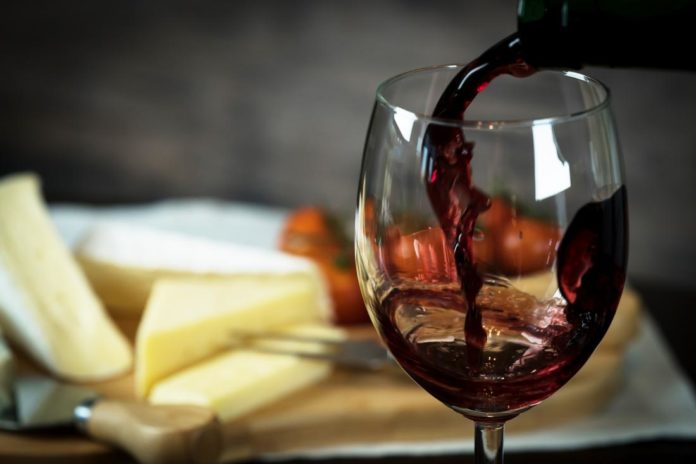Nobody likes a party pooper.
That’s why I held off publishing this article until AFTER New Year’s Eve.
Now that you’ve (hopefully) recovered from that night’s binge, it’s my duty to report on the latest findings about the health effects of drinking alcohol.
I’m bringing ants to the picnic, but you need to know this, no matter what you might do one night out of the year.
A recent study in Japan found that light drinking raises your risk of cancer by 5%.
One to Two Drinks a Day is Not a Good Idea
The researchers reviewed data from over 125,000 people admitted to hospitals. About half of them had cancer, and the other half didn’t.
The patients reported how much alcohol they generally consumed.
The study found the more alcohol these patients consumed, the higher their risk of getting cancer – which is the most common cause of death in Japan. The people with the lowest risk drank no alcohol.
The news articles about this study ignore the cancer risk suffered by people who consume more than two drinks a day. That raises your risk of cancer – and many other diseases as well – more than 5%.
But everybody has wanted to believe one or two drinks a day is even good for your health.
Unfortunately, the Results of This Study are in Line With Others
In Australia, the National Health and Medical Research Council (NHMRC) has reduced their recommended guidelines down from 14 drinks per week to 10. That’s dramatic in a country that, so I heard years ago, drank more wine per capita than the French AND more beer per capita than the Germans.
Way back in 1988, the World Health Organization classified alcohol as a Group 1 carcinogen. That puts it up there with tobacco. There’s no safe “dosage.” According to the International Agency for Research on Cancer (IARC), a woman’s risk of breast cancer goes up 7% for every drink she takes daily. Not far from the 5% increase risk found by other studies.
According to the American Cancer Society, alcohol consumption has been associated with 7 different cancers:
* Mouth
* Breast
* Colon and rectum
* Esophagus
* Liver
* Throat
* Voicebox
How Alcohol Causes Cancer
When you drink booze, enzymes convert it into acetaldehyde, a carcinogen. That happens in the mouth, accounting for why drinking increases your risk of mouth, esophagus, throat and voice box cancers.
Alcohol also damages cells in your mouth, making you more vulnerable to other damage there. For instance, people who smoke and drink at the same time face increased risk from the synergy of both carcinogens. They’re even more dangerous together than each of them is separately.
Enzymes continue to convert alcohol into acetaldehyde even as it goes into your liver. That and the scarring of the liver caused by its efforts to detoxify the alcohol increase your risk of liver cancer.
The acetaldehyde goes through your body, damaging DNA. This increases your risk of other cancers, especially in your colon.
Alcohol increases estrogen in women, which increases their risk of breast cancer. Scientists estimate alcohol causes 15% of breast cancer cases in the United States.
Wine is Not a Health Drink
The alcohol industry has done a great job of covering up the cancer risks of alcohol. And it’s even true the resveratrol in red wine is healthy – except you’d have to drink liters of wine to obtain any benefits. And no health authority recommends that.
Plus, the so-called French paradox is B.S. The World Health Organization investigated why the French had many fewer heart attacks despite their consumption of saturated fat. WHO discovered French doctors underreported deaths from heart disease by 20%. When you correct for that, the French have as much heart disease as everyone else eating high amounts of saturated fat.
The red wine the French drink is not protecting them from heart disease OR cancer. They rank #7 in the world in deaths from cancer, just down from the United States, which is at #5. (#1 is Australia.)
What about resveratrol? Yes, it’s healthy. And you can consume a lot more just by eating the grapes. Peanuts and blueberries are also good sources.
Get Help If You Need It
I’m lucky because I never became emotionally or physically attached to alcohol. If you weren’t so lucky, get the professional help you need.
A study released earlier this year reported seniors are increasingly binge drinking. This is a worrisome trend up there with the opioid epidemic.
Alcohol not only doesn’t protect against heart disease and raises your risk of cancer, it makes you unhealthy in many ways. They include raising your blood pressure and increasing your risk of dementia.
Sure, hardcore alcoholics suffer more than the rest of us, but even small amounts of booze put you at risk.
As we grow older, our risk increases whether we like it or not. I’ve had to accept I’m no longer “bulletproof” – as I often acted when much younger.
Binge drinking is dangerous for college kids, and even more so for seniors.
And so is even the regular consumption of small amounts of alcohol.








